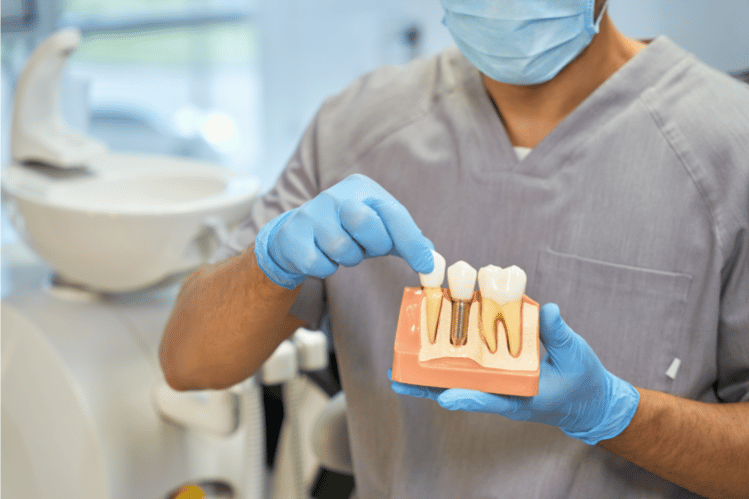
Introduction
Our diet influences every aspect of our physical health, and our oral well-being is no exception. The foods we consume hold the power to determine the fate of our teeth and gums, either fortifying their strength or leaving them vulnerable to decay. In this blog, we will uncover the nutritional secrets that can transform ordinary diets into extraordinary dental care, paving the way for a brilliant and enduring smile.
Importance of Dental Health
Dental hygiene plays a vital role in promoting overall health and well-being, especially for children. Regular brushing, flossing, and dental check-ups help prevent cavities, gum disease, and other oral health issues. Children with special needs may face difficulties in maintaining dental hygiene due to factors like limited motor skills, sensory aversions, and behavioral challenges. Parents and caregivers should adopt creative and adaptive techniques to make dental hygiene routines more enjoyable and less stressful for these children.
The Role of Nutrition in Dental Health
Maintaining optimal oral health requires proper nutrition. A well-balanced diet provides the necessary vitamins and minerals that support strong teeth and gums. Conversely, a diet high in sugary and acidic foods can lead to tooth decay and erosion, potentially leading to more severe dental problems in the long run. Incorporating foods that promote dental health into one's diet can go a long way in preventing oral issues and maintaining a radiant smile.
Foods for a Strong Smile
- Dairy Products: Calcium and phosphorus are found in large amounts in milk, cheese, and yogurt. These minerals are essential for maintaining strong tooth enamel, which protects the teeth from decay and sensitivity. Additionally, dairy products contain casein, a protein that helps to prevent the loss of minerals from tooth enamel. Including dairy in the diet can contribute significantly to a healthy smile.
- Crisp Fruits and Vegetables: Crunchy fruits and vegetables like apples, carrots, and celery are nature's toothbrushes. Their firm texture helps stimulate saliva production, which aids in neutralizing harmful acids and washing away food particles. Moreover, these foods are rich in fiber and various vitamins, providing additional benefits for overall oral health and digestion.
- Leafy Greens: Spinach, kale, and broccoli are a few examples of leafy greens that are packed with essential nutrients like calcium, folic acid, and vitamin B. Calcium helps strengthen teeth, while folic acid supports gum health. These greens also contain antioxidants that can reduce inflammation in the gums and lower the risk of gum disease.
- Nuts and Seeds: Nuts and seeds are excellent sources of essential minerals like calcium and phosphorus, as well as beneficial fats. They can contribute to healthier teeth and gums by promoting saliva production and assisting in the remineralization process. Chewing nuts and seeds also stimulates the gums, which can improve overall oral health.
- Nuts and Seeds: Nuts and seeds are excellent sources of essential minerals like calcium and phosphorus, as well as beneficial fats. They can contribute to healthier teeth and gums by promoting saliva production and assisting in the remineralization process. Chewing nuts and seeds also stimulates the gums, which can improve overall oral health.
- Fish and Omega-3 Fatty Acids: Fatty fish like salmon and mackerel are rich in omega-3 fatty acids, which have anti-inflammatory properties that benefit gum health. Additionally, omega-3 fatty acids may help reduce the risk of periodontal disease, a severe condition that affects the supporting structures of the teeth. Including fish in the diet can promote a strong smile and protect against gum problems.
- Water: Staying hydrated with water is essential for overall health, including dental health. Water helps wash away food particles and bacteria in the mouth, reducing the risk of cavities and bad breath. Drinking fluoridated water can also strengthen tooth enamel and protect against tooth decay.
- Green and Black Tea: Green and black teas contain compounds called polyphenols, which have antibacterial properties that can inhibit the growth of harmful bacteria in the mouth. These teas may help reduce the formation of plaque and the risk of cavities. However, it's essential to consume tea without added sugar to fully reap the benefits.
- Cranberries: Polyphenols are found in abundance in cranberries. They can help prevent bacteria from sticking to the teeth and causing plaque formation. However, it's important to consume cranberries in moderation, as they are acidic and may erode tooth enamel if consumed excessively.
Foods to Limit or Avoid
While there are foods that promote a strong smile, some should be limited or avoided to maintain optimal dental health:
- Sugary Foods and Beverages: Frequent consumption of sugary foods and drinks, like candies, cakes, and sodas, can lead to tooth decay. Sugar-feeding bacteria in the mouth produce acids that erode tooth enamel. Limiting sugary treats and choosing healthier alternatives can protect teeth from cavities.
- Acidic Foods and Drinks: Acidic foods and beverages like citrus fruits, tomatoes, and carbonated drinks can weaken tooth enamel, making teeth more susceptible to decay. When consuming acidic foods, it's best to rinse the mouth with water afterward and wait at least 30 minutes before brushing to avoid further enamel erosion.
- Sticky and Processed Snacks: Sticky snacks like caramel and chewy candies can adhere to the teeth, increasing the risk of cavities. Processed snacks often contain added sugars and preservatives that can harm dental health. Choose healthier snacks like fruits, vegetables, and nuts instead.
Conclusion
It is clear that what we eat directly impacts the strength and vitality of our smiles. By understanding the essential role that nutrition plays in maintaining healthy teeth and gums, we can make informed choices to promote optimal oral health.
FAQs
How can I maintain a lifelong healthy smile through nutrition?
Maintaining a healthy smile through nutrition involves adopting lifelong healthy eating habits. Embrace a diet rich in essential nutrients, limit sugary and acidic foods, and practice proper oral hygiene. Regular dental check-ups and cleanings, along with a nutritious diet, will support your journey towards a confident and enduring smile.
Are there foods that can naturally whiten teeth?
Certain foods can contribute to naturally whiter teeth. Strawberries contain malic acid, which can help remove surface stains on teeth. Additionally, crunchy fruits and vegetables like apples and celery can help scrub away stains as you chew, leading to a brighter smile over time.



